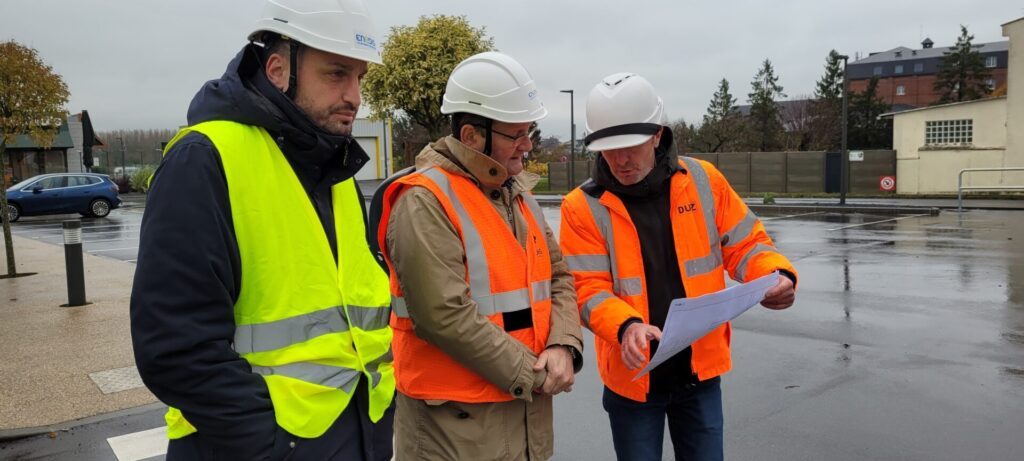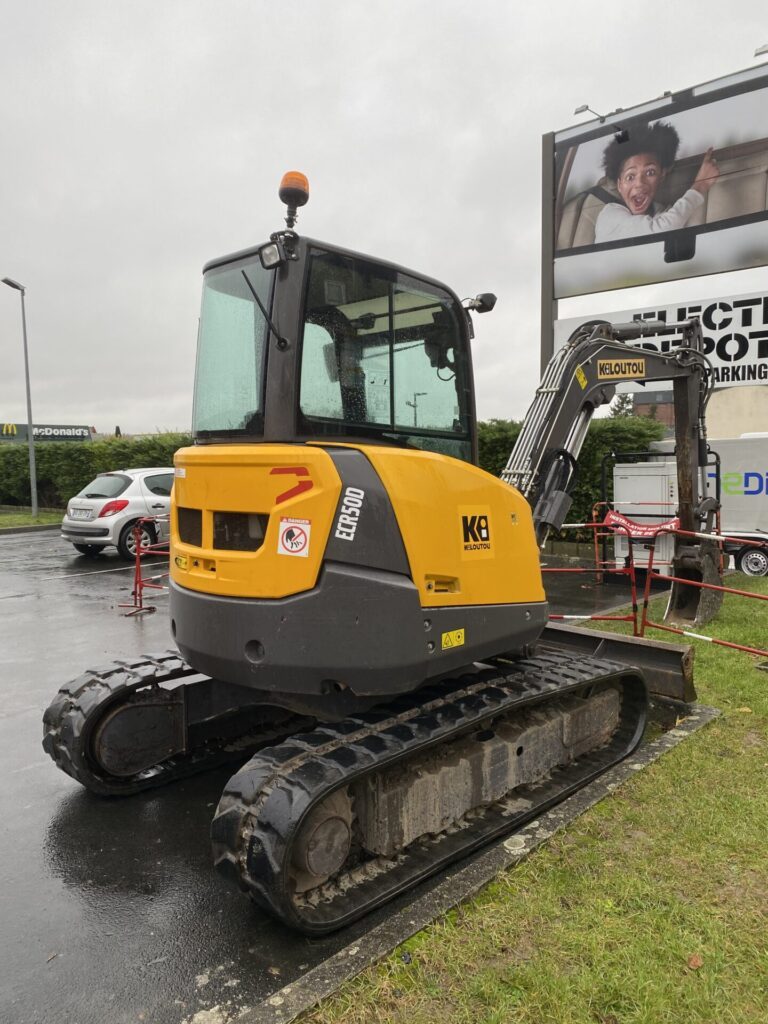A further step towards the ecological transition: Enedis is back in the field to carry out a new low-carbon project in Cambrai, in the Hauts-de-France region. This new experiment will allow us to build on the feedback from the first projects and compare the results with “conventional” projects in order to implement best practice.
From 22 to 29 November, Enedis and its partner Duez carried out a new connection for its customer IZIVIA Fast in Cambrai. The programme included a number of measures, including the use of low-emission machinery, such as electric vehicles or vehicles using renewable fuels, and the reuse of soil, which will reduce CO2 emissions by 41% compared with a “conventional” worksite. Low greenhouse gas emission works that apply the principles of the circular economy to meet a number of objectives: improving the environmental impact of worksites, measuring it more accurately and thus contributing to the climate effort and improving the quality of life of local residents.
A selection of greener vehicles
On this site, electric vehicles or vehicles using renewable fuels, supplied by the Kiloutou Group, reflect a shared commitment to decarbonising activities and uses. They reduce CO2 emissions by 90% compared with their combustion equivalent. Their use saves 4.7 tonnes of CO2 equivalent over the duration of the worksite, or almost 23,500 km by car.
- 5t combustion shovel running on HVO100 off-road biofuel
- 3t 100 electric excavator
- 100% electric loader
- 100% electric steering machine and chainsaw
- Battery pack to provide additional autonomy for the rammer and chainsaw


A unique recharging solution
Another special feature of this project was the use of an innovation from Burgundy to recharge the equipment: a trailer developed by Enedis, connected directly to the network. This solution makes it easier to organise the work, as technicians can use this mobile device to search for their equipment.
This is an extremely important project for Enedis, a major player in the ecological transition, and will provide further feedback to help improve worksite practices in the years to come.